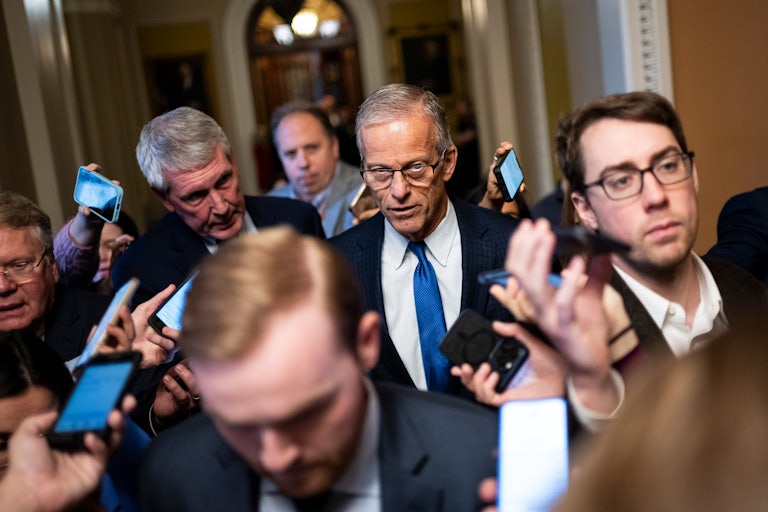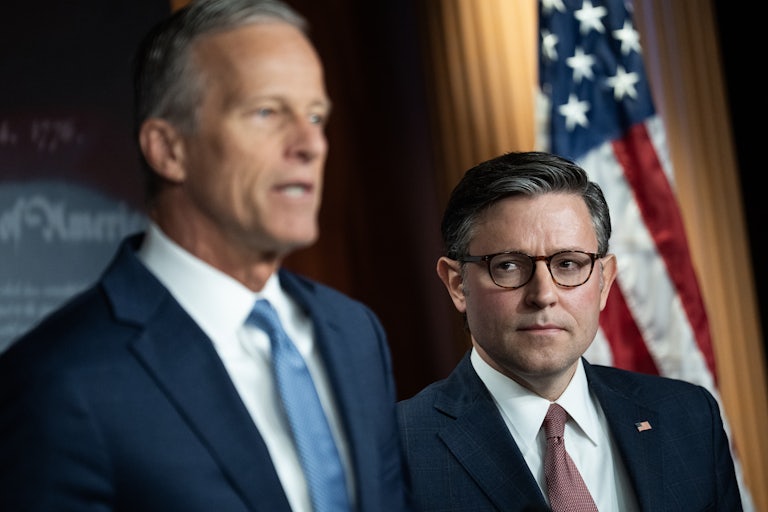Treasury Sec Flails When Asked If Trump’s Foreign Investments Are Real
Donald Trump keeps bragging about bringing in billions of dollars in foreign investments.

Treasury Secretary Scott Bessent struggled to sell President Donald Trump’s outrageous claims about how much money the United States is making from his trade deals.
During an interview on Fox News Tuesday night, host Brett Baier asked Bessent how much money Trump was bringing in through trade deals, corporate commitments, and tariff revenue.
“Well, the president uses the number ‘20 trillion’ in terms of total investments, and I think that those commitments are real,” Bessent replied, sounding slightly unsure.
He rattled off a few examples of major investments as part of trade deals with Japan and Korea, as well as a commitment from Apple, calling them “investments like we’ve never seen.” But the Treasury secretary offered no exact number, just the president’s own propaganda.
Bessent’s waffling answer could indicate that he knows how ridiculous that “20 trillion” claim actually is. The White House’s own investments website lists the total of all U.S. and foreign investments at only $9 trillion—but crucially, the Trump administration also misstated some investments.
They claimed that Japan had agreed to make a $1 trillion investment, when the most recent deal from July was for only a little more than half of that. The website claimed that Korea has pledged a $450 billion investment in U.S. energy products, when the number is actually $350 billion, made up of $200 billion in cash installments capped at $20 billion per year and another $150 for shipbuilding. Similarly, Apple has pledged to spend more than $500 billion, and the White House website bumped that up to $600 billion.
At the same time, tariff revenue for FY 2025 was only $195 billion, which is a significant increase from the year before, but doesn’t push that number anywhere near the $20 trillion Trump has claimed.








